Digital farmhand
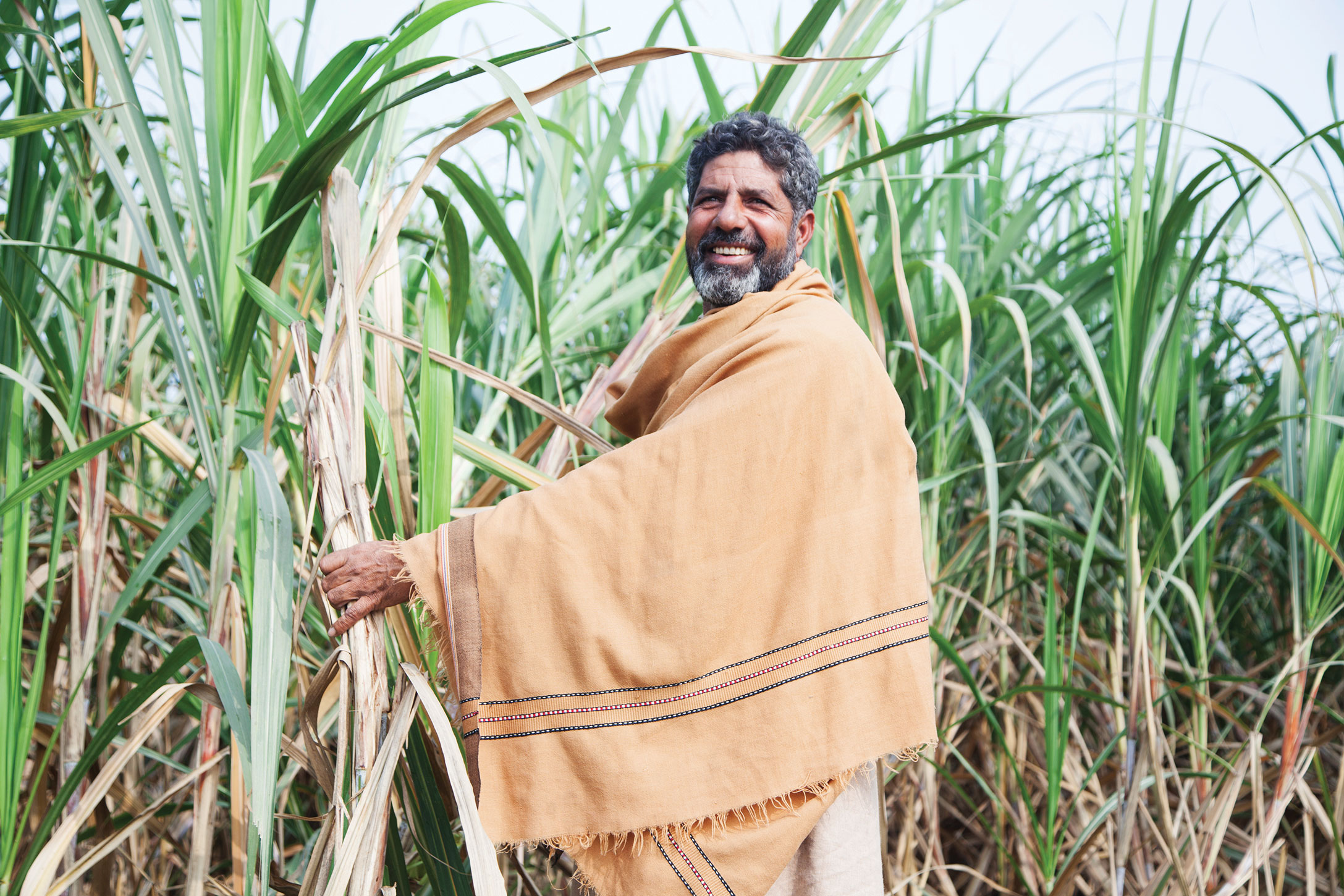
For as long as he can remember, Aukrit Unahalekhaka, SM ’16, has been bothered by the jarring inequality in his home country of Thailand. When he was three or four, he began traveling with his parents, who run an agriculture business, from the wealthy metropolis of Bangkok to the distressed farmlands outside the city. The glimpse he got into the stark lives of farm families was hard to forget.
“I’d see a father and mother and two or three children … but a lot of these children don’t have a great education because their family is poor, so they have to go back and help their parents with the farm,” Unahalekhaka says. “I realized the food that they eat, and their hygiene, was horrible. If one of the children got sick, they didn’t have the money to afford good health care. So their life was very difficult.”
That’s why in the fall of 2014, when everyone in his Development Ventures class at MIT’s Media Lab had to pitch a concept for a business, Unahalekhaka was excited to unveil his plan: he would develop mobile tools to help small farmers in Thailand rise above the extreme poverty most of their families had struggled with for generations.
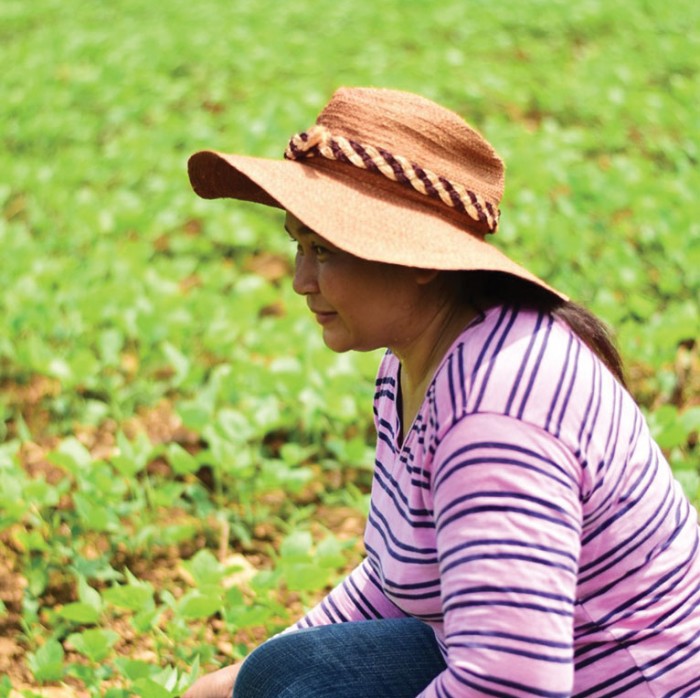
But before Unahalekhaka could make his pitch, a classmate proposed the same idea—only he wanted to do it in his home country of Pakistan. After class, Unahalekhaka and his like-minded peer, Usman Javaid, MBA ’15, got together and did some research. They quickly realized they’d stumbled onto a global problem.
More than two billion people around the world rely on small-scale farms for their livelihood, they found. These farmers and their families are among the poorest people on the planet: hundreds of millions of them live on less than $2 a day.
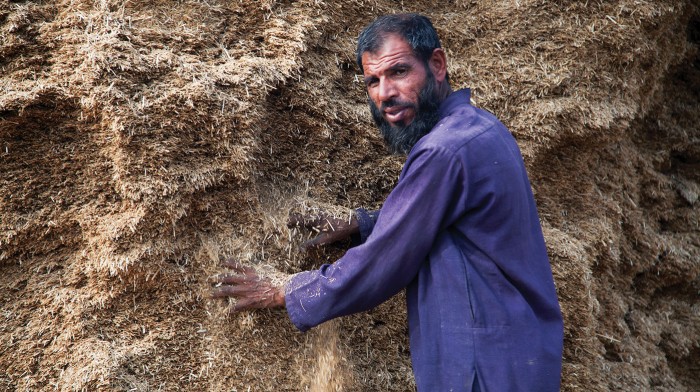
They dug deeper into the plight of small farmers and discovered that their challenges go well beyond dealing with the vagaries of nature; they span the entire agricultural supply chain. First, without the good credit scores needed to secure bank loans, they must rely on loan sharks to get the money to buy seeds, tools, and other supplies. As they set about planting and tending to their crops, they lack vital information on things like weather forecasts (which Unahalekhaka says have become less predictable with climate change), optimal nutrient application, and current market prices. At harvest, many of them have a very small window of time to sell crops before they spoil, but without direct access to buyers, they are often forced to go through the same exploitative intermediaries who gave them the loan to begin with.
With those problems in mind, Unahalekhaka and Javaid founded Ricult, a startup whose name they plucked from the middle of the word “agriculture.” They staked out an ambitious mission: to create a profitable company that helps small farmers overcome every major obstacle that arises throughout the process of growing and selling their crops. To make that happen, they would establish local partnerships with key players throughout the agricultural supply chain and develop a multifaceted mobile tool for farmers that could be accessed in even the most remote regions of the world.
“Farmers are at the bottom of the pyramid in developing countries, so if you want to drive these countries forward and reduce inequality, you have to transform the agricultural sector,” Unahalekhaka says.
With such a complex problem as the target, Unahalekhaka and Javaid looked for cofounders with deep skill sets in diverse fields. In 2016, they partnered with Jonathan Stoller ’16, SM ’16, then a computer science student who’d done software development at Google and Microsoft, and Gabriel Torres ’08, who had experience trading commodities and futures for a hedge fund in Chicago.
The founders started by interviewing farmers in Thailand and Pakistan about the challenges they faced. Using what they learned, they built their company one feature at a time. Ricult began selling seeds and fertilizers to a small group of farmers in Pakistan in March 2016. That September, they partnered with their first bank to help facilitate loans to farmers, using satellite images of the farms and Torres’s background in forecasting markets to predict the likelihood a farmer would repay a loan.
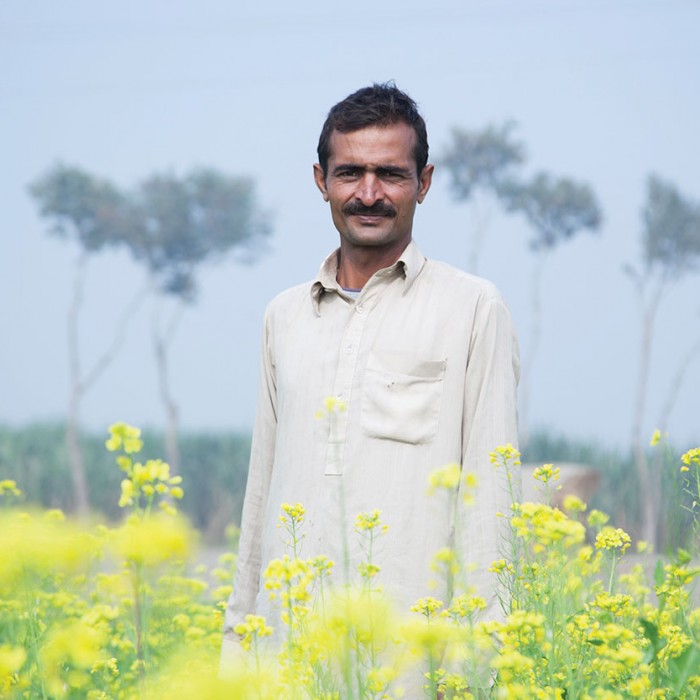
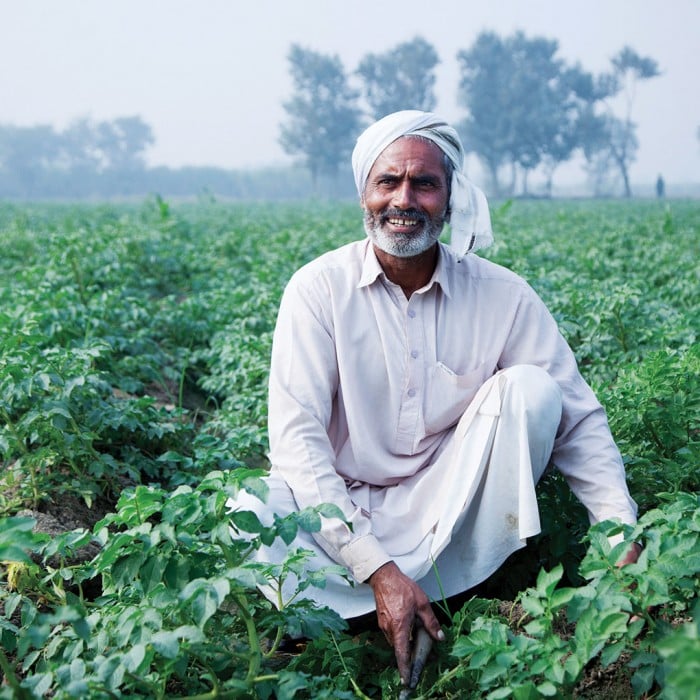
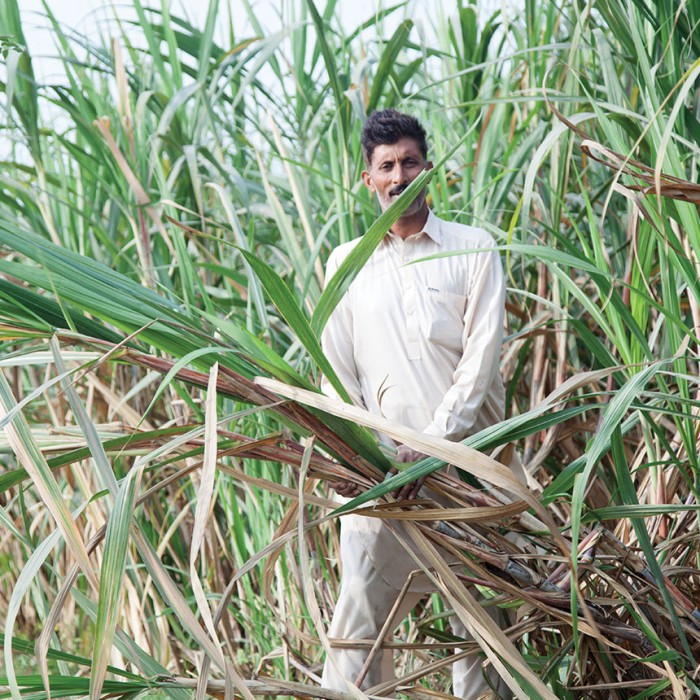
By June 2017 they were developing a mobile app that gives farmers weather forecasts and warns them about upcoming pest attacks. By October, they’d launched a pilot trial in Thailand with a few dozen farmers and partnered with mills in the country to give farmers direct access to buyers. Along the way, they drew on support from the Martin Trust Center for MIT Entrepreneurship and the Legatum Center (which named Unahalekhaka one of its fellows) as they polished their ideas for Ricult through myriad pitch competitions at the Institute.
Cutting out the middlemen at each stage has made Ricult an attractive alternative to the status quo. As of April 2019, Ricult’s mobile app had been downloaded close to 40,000 times, and the founders say they’re on target to be helping more than 100,000 farmers by the end of the year.
By partnering with existing players in the agricultural industry, like banks and soil experts, Ricult was able to stay lean as its user base more than tripled between October 2018 and March 2019. And with the rapid proliferation of cell-phone ownership in developing countries around the world, the company is well positioned to expand its impact.
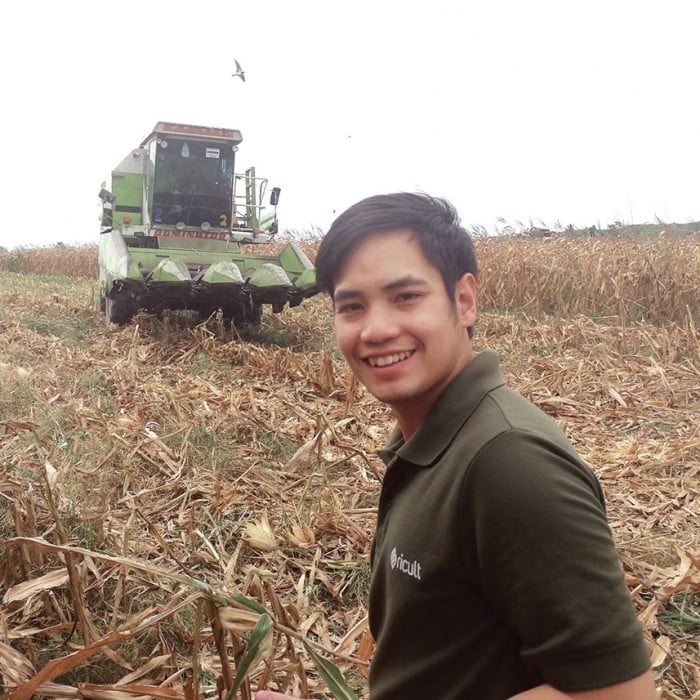
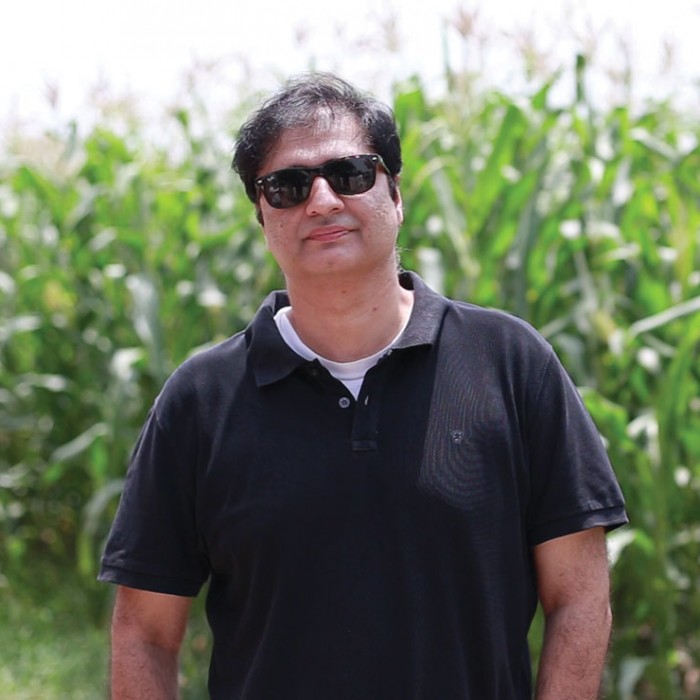
Ricult cofounders Aukrit Unahalekhaka, SM ’16, (left) and Usman Javaid, MBA ’15, offer digital tools to small farmers.
A tool for change
Ricult’s business model is based on collecting and sharing data on a lot of very small farms—data that until now hasn’t been available. Farmers who want to take advantage of Ricult’s tools and partnerships must first register by entering their farm’s GPS coordinates on Ricult’s app. Ricult pays smartphone owners to help register nearby farmers who don’t have smartphones. After they’ve signed up, farmers can access Ricult’s tools through an app on a smartphone or through SMS messaging on phones that only offer texting. If they don’t own a phone but have access to one, they can also receive information through a voice call.
“The worst thing you can do when you’re building a new solution in our part of the world is build everything from scratch.”
Once it has recorded the exact location of a farm’s fields, Ricult combines publicly available and purchased satellite imagery with weather projections to forecast crop yields and generate a proprietary score estimating how likely a farmer is to be able to repay a loan. Unahalekhaka says Ricult’s scores allow banks that traditionally required credit scores to offer farmers loans at much lower interest rates than the unofficial brokers, who have sometimes charged up to 200% interest because they’ve been the only source of funding available.
Once a farmer’s credit application is approved, Ricult pays independent agricultural experts to visit the farm and conduct soil testing. This data is fed into Ricult’s algorithms, which also take into account historical climate and weather data for the area to produce insights on questions such as what crops to plant, when to plant them, and which fertilizers and pesticides to consider buying. Farmers can use Ricult’s digital marketplace to buy seeds, fertilizers, and pesticides, which are affordably priced because they’re sourced directly from large international brands. Ricult pays local drivers to deliver the products directly to the farm free of charge.
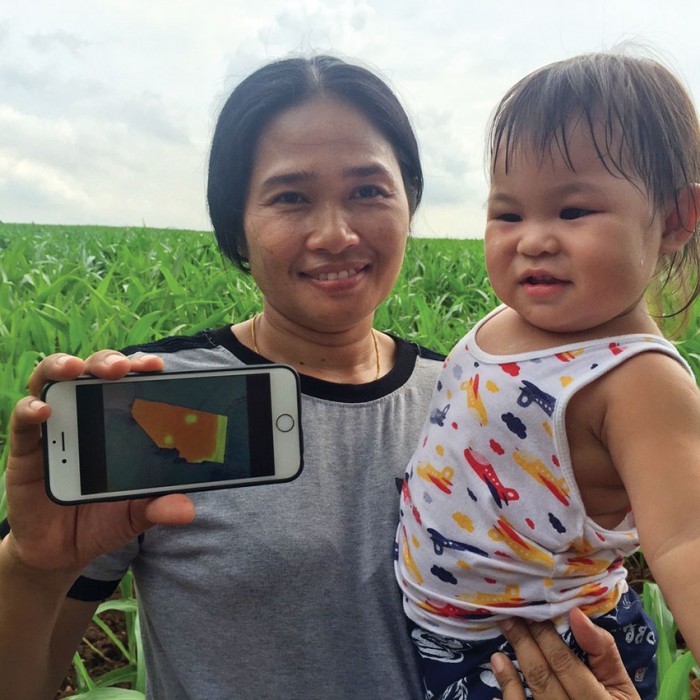
“The worst thing you can do when you’re building a new solution in our part of the world is build everything from scratch,” Javaid says. “The most efficient way to do things is to leverage the existing infrastructure and improve it. That’s our focus. We don’t hire people on our payroll; they’re already doing this for a living. We just enable them with digital tools, and they do what they always do, just more efficiently.”
Throughout the growing season, Ricult continues to offer insights based on its algorithms, such as the optimal time to sow seeds and how much of a specific nutrient to apply. When local experts enter soil data into Ricult’s platform, a simple visual is created to show which parts of the farm need more water, pesticides, or fertilizers. And when farmers are ready to sell their crops, Ricult connects them directly with large food-processing companies, again eliminating the intermediary brokers.
“The agricultural value chains in developing countries are very strongly linked with each other,” Javaid says. “You can’t just address one part of the problem and hope the rest of the problem will go away. If the farmer still has to go back to the middleman to sell his crops, the middleman won’t buy his crops if he hasn’t taken a loan from him.” He thinks of it as a vicious circle that must be broken to make Ricult profitable enough to be sustainable.
“I think we’re solving a huge pain point in the agricultural sector, not just for the farmers,” Unahalekhaka says, noting that banks and the mills that buy crops have long been looking for ways to eliminate the inefficiencies created by exploitative middlemen and off-the-grid farmers. “When we went to the banks and buyers, they got it right away. We provide a clear value proposition.”
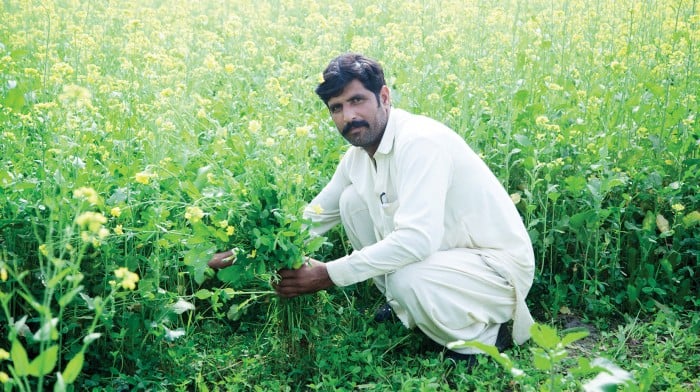
The founders run Ricult as a “double bottom line” company, meaning they measure its success in terms of both its balance sheet and the number of lives it has improved. It makes money by selling its proprietary credit scoring system to banks and charging a subscription fee to banks and crop buyers so they can monitor the soil data of farms in their network. The company also takes an average of 2% of each crop buyer’s purchase price.
Ricult’s services boosted its first 300 farmers’ crop yields by an average of 50%, while the farmers’ profits rose 30% to 40%, Unahalekhaka says. The company now offers its services to farmers across Thailand, and next year the founders plan to explore opportunities in nearby countries such as Cambodia, Myanmar, and Sri Lanka.
But for now, they want to make sure Ricult is having the biggest possible impact in Pakistan and Thailand—countries with around 40 million farmers between them.
“A 40% increase in profits has a huge impact on these farmers’ lives,” Unahalekhaka says. “Before, the farmer had to decide, ‘Should I send my kid to school, or should I save that money to pay for food or health care?’ All of those things are necessary for a quality life. With more money, they don’t have to make those tough choices anymore.”
Keep Reading
Most Popular
Large language models can do jaw-dropping things. But nobody knows exactly why.
And that's a problem. Figuring it out is one of the biggest scientific puzzles of our time and a crucial step towards controlling more powerful future models.
How scientists traced a mysterious covid case back to six toilets
When wastewater surveillance turns into a hunt for a single infected individual, the ethics get tricky.
The problem with plug-in hybrids? Their drivers.
Plug-in hybrids are often sold as a transition to EVs, but new data from Europe shows we’re still underestimating the emissions they produce.
Google DeepMind’s new generative model makes Super Mario–like games from scratch
Genie learns how to control games by watching hours and hours of video. It could help train next-gen robots too.
Stay connected
Get the latest updates from
MIT Technology Review
Discover special offers, top stories, upcoming events, and more.